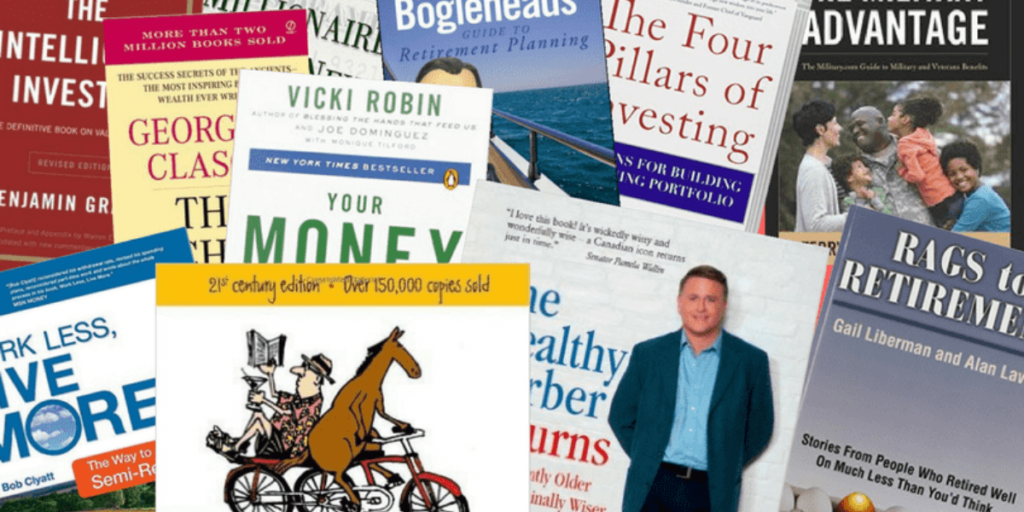Managing personal finances can be a challenging task, especially in today’s economic climate. However, with the right tools and knowledge, it is possible to take control of your financial situation and build a secure future. One of the best ways to gain this knowledge is by reading personal finance books.
With so many books on the market, it can be difficult to know where to start. That’s why we have compiled a list of the top 10 personal finance books of all time. These books have stood the test of time and have helped millions of people worldwide to achieve financial success. Whether you’re just starting out on your financial journey or looking to improve your existing knowledge, these books are a must-read.
So, without further ado, let’s dive into the world of personal finance and explore the top 10 books that can help you transform your financial future.
Table of Contents
Top 10 Personal Finance Books of All Time
The aim here is not to pick books for their popularity or their reflection of any current trends, but to choose the best finance books based on the quality of their contents. As such, these are the 10 best personal finance books of all time.

1. The Intelligent Investor by Benjamin Graham.
If you are looking for the one book that outlines the fundamentals of value investing, look no further. Graham’s book is considered to be the bible of value investing.
Warren Buffett name-checks it in his famous essay, “The Superinvestors of Graham-and-Doddsville”, as the book that influenced him to become a successful investor.
In the preface of the fourth edition, Buffett wrote: “I read the first edition of this book early in 1950 when I was nineteen. I thought then that it was by far the best book about investing ever written. It’s still in print–and still the best.”
“The Intelligent Investor” by Benjamin Graham is one of the most important books about finance that everyone should read. It reveals how to develop long-term strategies with stocks and bonds in order to create wealth and minimize risk.
2. Security Analysis by Benjamin Graham and David Dodd.
If you are looking for a textbook on security analysis, this is the book to read. It was originally published in 1934, but has since been revised several times, with the last edition being named “Graham and Dodd’s Security Analysis.” This book is still used in business schools today.
Graham and Dodd are considered pioneers of modern security analysis. The book starts off with the basics of investing, before moving on to more advanced techniques such as calculating the value of a stock and estimating its future earnings.
3. Common Stocks and Uncommon Profits by Philip Fisher.
This is another classic that deals with growth investing, or investing in companies that are expected to grow faster than average. These ideas were developed by Philip Fisher in this book, which was first published in 1958.
Fisher describes the qualities that should be looked for in companies that are expected to grow faster than average and argues that finding these companies is more difficult than other types of investing.
4. Stocks for the Long Run by Jeremy Siegel.
Another classic here, this book provides evidence on how stocks can help you create wealth over the long run. In this book, Siegel provides a firsthand account of the stock market from the late 1920s through 2003 – how it has grown and what you can expect from stocks in the future.
Not only does he argue that history repeats itself but also that stocks are still a very attractive option for long-term investors looking to grow their wealth over time.
5. Common Sense on Mutual Funds by John Bogle.
John Bogle, the founder of Vanguard Group and champion of low-cost index funds, has long argued that actively managed mutual funds are costly for investors. In this book, first published in 1999, he explains why investors should choose passively managed funds over more expensive actively managed funds. Bogle’s book gives investors the guidance they need to make informed decisions about their investment options.
6. Irrational Exuberance by Robert Shiller.
Shiller is one of the best economists around, and this book provides an in-depth analysis of the stock market over time, including its history and current trends. This book was published in 2000, at the height of the dot-com bubble, just before it burst.
His warning that the stock market was overvalued didn’t go unnoticed and it gained him credibility when he also warned of similar problems in 2007 just before the great recession.
7. More Money Than God by Sebastian Mallaby.
This book tells you all about hedge funds, which are basically pools of investment capital that are not open to the public. Their goal is to use diversification and flexibility in their portfolios to maximize returns while minimizing risks.
The book starts with an explanation of what hedge funds are, how they work, and where they’ve come from before moving on to talk about which types of people have profited and lost from these funds and what the future holds for them.
8. Rich Dad Poor Dad by Robert Kiyosaki.
“Rich Dad Poor Dad” is a book written by Robert Kiyosaki and Sharon Lechter. It was published in the year 2000 and is about how rich people think differently from poor people.
The book talks about how to make money, grow wealth, and achieve financial independence. It also teaches readers the difference between an asset and a liability, investments, and liabilities, and financial intelligence.
The main idea of this book is that most people are taught that only work leads to money whereas the rich believe that money leads to more money.
9. The Behavior Gap by Carl Richards.
Having the information to make smart financial decisions is one thing; applying that information in your daily life is another. This book, written in 2011, discusses the psychology behind our financial decisions. This book is more about emotional intelligence and understanding why we make the decisions that we do when it comes to our money.
10. The Only Investment Guide You’ll Ever Need by Andrew Tobias.
It is always useful to have a simple guide that tells you the basics of what you need to know when it comes to investing in stocks, mutual funds, bonds, and real estate. This book goes through all of these types of investments and provides sound advice on why, when, and how you should invest. It also comes with a guide to investing in gold and silver as well as some useful information on taxes.
Final thoughts
Personal finance is an essential aspect of our lives, yet many people struggle with managing their money effectively. Fortunately, there is a wealth of information available in the form of personal finance books that can help us understand and improve our financial situations.
In this article, we have discussed the top 10 personal finance books of all time, which are a must-read for anyone looking to gain a deeper understanding of personal finance. These books cover a broad range of topics, including budgeting, investing, and retirement planning, among others.
Whether you are a beginner or an experienced investor, there is something for everyone in these books. They offer practical advice and actionable tips that can help you make better financial decisions and achieve your financial goals.
One of the most significant benefits of reading personal finance books is that they can provide you with a sense of empowerment and control over your financial future. By gaining knowledge and insight into personal finance, you can take control of your money and avoid common financial pitfalls.
In conclusion, personal finance books are an excellent resource for anyone looking to improve their financial literacy and achieve financial independence. By reading these top 10 personal finance books, you can gain the knowledge and confidence needed to take control of your finances and build a better financial future.
So, don’t wait any longer, pick up one of these books and start your journey towards financial freedom today!
Related articles:
- Top 10 Personal Finance Podcasts You Should Listen to Right Now
- 16 Best Entrepreneurship Series: Must-Watch for Every Entrepreneur
😉 I hope this helps!







